#ADFNS2023 - African parliamentary food systems network takes-off the ground
African legislators will amplify use of synthesized evidence to drive country actions through financing transformation in three flagship issues namely; inter-African trade, import bill and nutrition.

LUSAKA, Zambia (Planet Defence) – The African Food Systems Parliamentary Network (AFSPaN) has been launched following a series of discussions with non-state actors, African Union Commission that legislators from across the continent were being left behind on issues related to agriculture and biennial review report under the Malabo declaration.
AFSPaN originated from a series of discussions between parliamentarians, development partners and non-state actors. These discussions included the 2022 proposed Comprehensive Africa Agriculture Development Programme (CAADP) Partnership Platform, 2023 African Union CAADP Parliamentarian Peer Learning session held in Nairobi, Kenya and the 2023 Alliance for a Green Revolution African Food Systems Forum held in Dar es Salaam, Tanzania.
As representatives and voices of the people through AFSPaN they will be a community of willing country-elected parliamentarians working, alongside existing legislative structures, to amplify food systems action as champions at national level in their respective countries where chapters will soon be constituted.
The AFSPaN model for action-driven change towards a common position and strategy states that legislators will amplify use of synthesized evidence to drive country actions by amplifying three flagship issues through financing transformation namely inter-African trade, import bill and nutrition.
Speaking during a panel discussion moderated by Honourable Gladys Ganda from Malawi. Ganda observed that they noted parliamentarian were a missing link in the whole agenda of CAADP and issues related to the biennial review report at national, regional and continental level.
She questioned the rationale of leaving parliament behind in this noble cause of agriculture that is linked to food security.
“It is parliament that plays oversight when it comes to policies and financing in the agriculture sector at national level. We are talking of over 250 million people that are hungry now on the continent. As such this network has come at the right time to create champions at national level in our respective countries on issues of food systems,” she explained.
The panel discussion comprised of four legislators discussing among other things the role of the network, what they have done in the respective countries, efforts to achieve the Malabo targets, how Africa plans to address current issues of perennial hunger and food systems, what innovative initiative plans AFSPaN should undertake and what partnership exists working with other initiatives including other legislative structures.
The panelists were Honourable Melese Geneson, Ethiopia, Honourable Didier Molisho, Democratic Republic of Congo, Honourable Menyani Zulu, member Pan African parliament, Honourable Jeremy Lissouba, parliamentarian Congo Brazzaville, Honourable Dr. Godfred Seidu Jasaw, Ghana and Honourable John Mutunga of Kenya.
This loose network, which remains open to participation from all NSAs in the food and agriculture space, included representation from: Networks of NSAs – ECOWAS, EAC, SADC, Youth, Media, and Smallholder Women Farmers. International and Pan-African NGOs - ActionAid, Oxfam, Care, Trust Africa, Christian Aid, Shamba, ONE, SDG2 Hub, Akademiya 2063, Policy LINK, AGRA, and Wasafiri, amongst others AU CAADP DREA team through the AU stakeholder liaison officer.
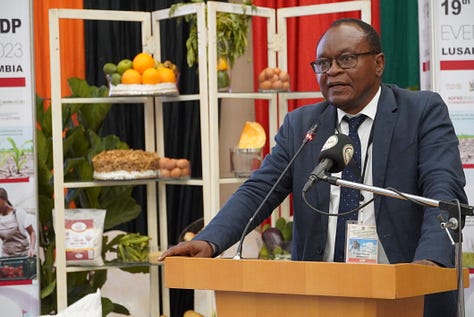
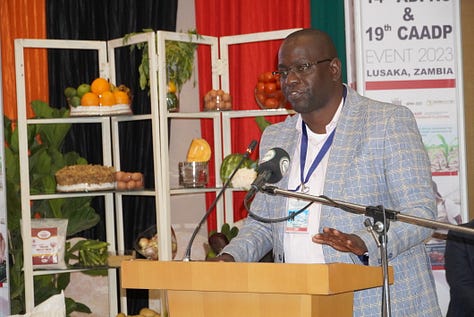
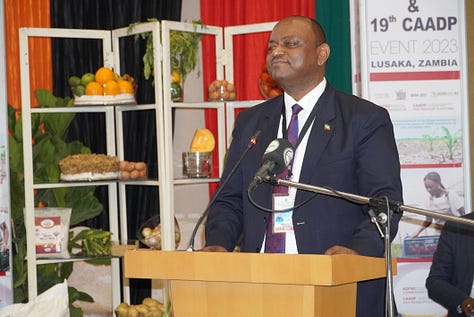
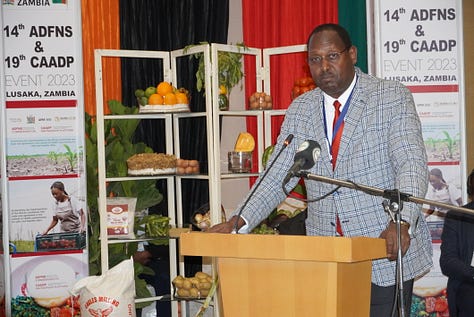
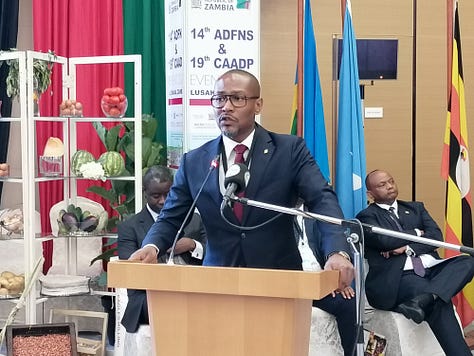

In a related development countries that surpass the last biennial Review Report benchmark to be on-track towards achieving the commitments of the Malabo declaration by 2025 were recognized with trophies.
Only four out of fifty countries had reached the target of 6.6 which is the benchmark of 2019 Biennial Review report endorsed by African head of states on 10th February in Addis Ababa, Ethiopia. The countries are Rwanda that scored (7.24), Morocco (6.96), Mali (6.82) and Ghana (6.67).
These countries were rewarded trophies during the African Day on Food Nutrition Security by Godfrey Bahiigwa, Director of Agriculture and Rural Development at the African Union Commission as recognition for the efforts toward achieving CAADP goals.
According to the last Biennial Review report outcome, forty – five countries scored below 6.6 meaning the performance was under the Africa Agriculture Transformation Scorecard (AATS) lower than the required benchmark.
As such technically, they were not on a trajectory that will reach the target for the commitment.
On other hand, five countries namely; Algeria, Egypt, Libya, Comoros, Sao Tome and Principe and Republic of Sharawi did not provide data to enable them for the continental assessment.
AATS is African Union assembly measurement on the implementation of Malabo declaration for accelerated agricultural growth and transformation for shared prosperity and improved livelihoods among it’s member states.



